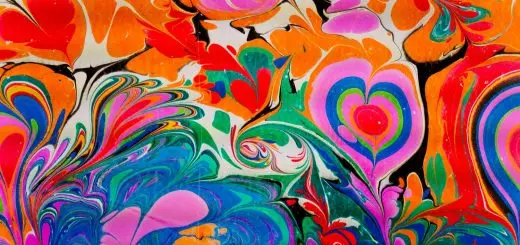British Arthurian Literature: From Geoffrey of Monmouth to Tennyson

Looking for more amazing products? Check out our online store and explore our collection here! Happy shopping!
Before diving in, please note: This post is for informational purposes only. If you’d like to know more about how we approach topics, feel free to check out our friendly Disclaimer Page.
Hey there, amazing readers! 
We’re committed to delivering quality posts, and your support (even just sticking around despite the ads) means everything to us. So, bear with us, and thanks for helping us keep the good vibes rolling. Now, on to the fun stuff!
TRANSLATE BUTTON AT THE END OF THE ARTICLE
A Quick Overview
Arthurian literature holds a special place in British literary history, encompassing a rich tapestry of myths, legends, and stories surrounding King Arthur and the Knights of the Round Table.
From its origins in medieval chronicles to its revival during the Romantic and Victorian eras, Arthurian literature has captivated audiences for centuries.
This article delves into the evolution of British Arthurian literature, tracing its roots from Geoffrey of Monmouth’s seminal work to Alfred, Lord Tennyson’s iconic poetry.
Exploring the Roots of British Arthurian Literature
The origins of British Arthurian literature can be traced back to the early medieval period, with the earliest references to King Arthur found in Welsh and Breton folklore.
These early tales depicted Arthur as a warrior king who defended Britain against invading forces and supernatural threats.
The first written account of Arthurian legend can be found in the 9th-century Historia Brittonum, a Latin text attributed to the Welsh monk Nennius.
Geoffrey of Monmouth’s Influence on Arthurian Tales
Geoffrey of Monmouth’s "Historia Regum Britanniae" (History of the Kings of Britain), written in the 12th century, played a pivotal role in shaping the Arthurian legend as we know it today.
In his work, Geoffrey introduced Merlin, Arthur’s magical advisor, and portrayed Arthur as a heroic figure destined to unite Britain.
Geoffrey’s embellishments of the Arthurian mythos, such as the Sword in the Stone and the love triangle between Arthur, Guinevere, and Lancelot, laid the foundation for future Arthurian literature.
Chretien de Troyes and the French Influence
In the 12th and 13th centuries, French poet Chretien de Troyes further developed the Arthurian legend with his romantic and chivalric tales.
Chretien introduced iconic characters like Lancelot, the ideal knight, and the Holy Grail, a sacred relic sought after by Arthur’s knights.
His works, including "Lancelot, or the Knight of the Cart" and "Perceval, the Story of the Grail," added depth and complexity to the Arthurian narrative, influencing subsequent writers across Europe.
The Evolution of the Arthurian Legend in Medieval Britain
Medieval British writers continued to expand upon the Arthurian mythos, incorporating elements of Celtic folklore, courtly love, and chivalric ideals.
Poets like Marie de France and Thomas Malory contributed to the development of Arthurian literature, crafting tales of adventure, romance, and betrayal set in the mythical realm of Camelot.
These stories captured the imagination of readers and solidified Arthur’s status as a legendary king.
Malory’s "Le Morte d’Arthur" and its Impact
Sir Thomas Malory’s "Le Morte d’Arthur," written in the 15th century, is considered the definitive Arthurian text in English literature.
Compiled from various sources, Malory’s work chronicles the rise and fall of King Arthur and his knights, highlighting themes of honor, loyalty, and the inevitability of fate. "Le Morte d’Arthur" remains a classic of Arthurian literature, shaping popular perceptions of the legend for generations to come.
The Romantic Revival of Arthurian Literature in the 19th Century
The 19th century witnessed a resurgence of interest in Arthurian literature, fueled by the Romantic movement’s fascination with medieval themes and legends.
Poets and writers like Alfred, Lord Tennyson and Sir Walter Scott drew inspiration from Arthurian tales, infusing them with a sense of nostalgia and melancholy.
Tennyson’s "Idylls of the King," a series of poems reimagining the Arthurian saga, became a cornerstone of Victorian literature.
Tennyson and the Victorian Era’s Arthurian Renaissance
Alfred, Lord Tennyson’s poetic retelling of the Arthurian legend in "Idylls of the King" captured the imagination of Victorian readers, presenting Arthur as a tragic hero grappling with internal and external conflicts.
Tennyson’s lyrical verse and romantic imagery helped revive interest in Arthurian lore, shaping the Victorian era’s perception of chivalry, honor, and the quest for truth.
His portrayal of Arthur and his knights resonated with audiences seeking moral guidance and escapism during a time of rapid industrialization and social change.
The Role of Arthurian Literature in British National Identity
Arthurian literature has long been intertwined with British national identity, serving as a source of inspiration and cultural pride.
The legend of King Arthur, with its themes of unity, heroism, and the defense of the realm, has been invoked in times of political uncertainty and social upheaval.
From medieval chronicles to modern retellings, Arthurian tales continue to symbolize the enduring spirit of Britain and its mythical past.
Arthurian Literature in Modern Popular Culture
The legacy of Arthurian literature extends beyond the realm of literature, influencing various forms of popular culture, including film, television, and video games.
Adaptations of the Arthurian legend, such as the BBC series "Merlin" and the film "Excalibur," have brought the stories of King Arthur and his knights to new audiences.
The timeless themes of love, honor, and betrayal found in Arthurian tales continue to resonate with contemporary audiences, demonstrating the enduring relevance of these age-old myths.
Comparing Different Interpretations of the Arthurian Legend
Throughout history, writers and artists have offered diverse interpretations of the Arthurian legend, reflecting changing societal values and literary trends.
From the chivalric romances of the Middle Ages to the Victorian reimaginings of Tennyson, each era has brought its own perspective to the Arthurian mythos.
Whether portrayed as a noble king, a flawed hero, or a symbol of lost glory, King Arthur remains a complex and multifaceted figure in literary tradition.
The Enduring Appeal of Arthurian Literature in the 21st Century
In the 21st century, Arthurian literature continues to captivate readers and scholars alike, inspiring new works of fiction, academic research, and cultural commentary.
The timeless themes of love, loyalty, and the search for meaning in a chaotic world resonate with audiences across generations.
As the legend of King Arthur endures, so too does the fascination with his legendary court and the quest for the elusive Holy Grail.
Conclusion
British Arthurian literature, from its origins in medieval chronicles to its contemporary adaptations, remains a cherished and enduring part of literary tradition.
Through the works of Geoffrey of Monmouth, Chretien de Troyes, Sir Thomas Malory, Alfred, Lord Tennyson, and countless other writers, the Arthurian legend has evolved and adapted to reflect the values and concerns of each era.
As we continue to explore the rich tapestry of Arthurian literature, we gain insight into the timeless themes of heroism, honor, and the enduring quest for truth that continue to resonate with audiences today.

The Enlightenment Journey is a remarkable collection of writings authored by a distinguished group of experts in the fields of spirituality, new age, and esoteric knowledge.
This anthology features a diverse assembly of well-experienced authors who bring their profound insights and credible perspectives to the forefront.
Each contributor possesses a wealth of knowledge and wisdom, making them authorities in their respective domains.
Together, they offer readers a transformative journey into the realms of spiritual growth, self-discovery, and esoteric enlightenment.
The Enlightenment Journey is a testament to the collective expertise of these luminaries, providing readers with a rich tapestry of ideas and information to illuminate their spiritual path.
Our Diverse Expertise
While our primary focus is on spirituality and esotericism, we are equally passionate about exploring a wide range of other topics and niches 

To ensure we provide the most accurate and valuable insights, we collaborate with trusted experts in their respective domains 
Our blog originally focused on spirituality and metaphysics, but we’ve since expanded to cover a wide range of niches. Don’t worry—we continue to publish a lot of articles on spirituality! Frequently visit our blog to explore our diverse content and stay tuned for more insightful reads.
Hey there, amazing reader! 
Check out our store here and take a peek at some of our featured products below! Thanks for being awesome!













